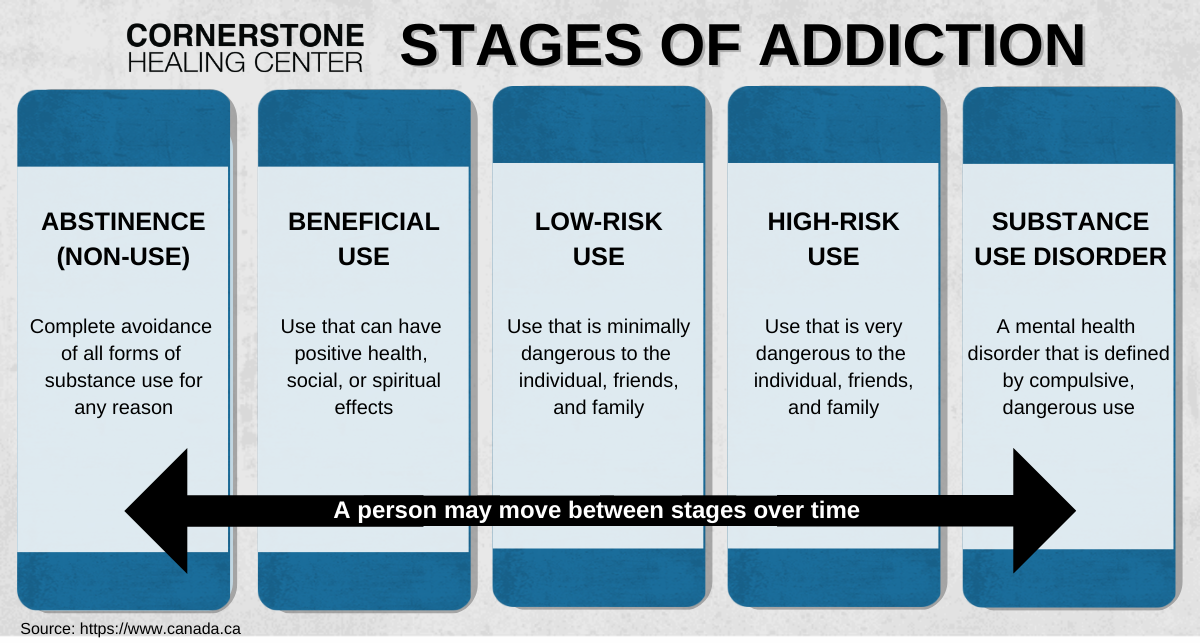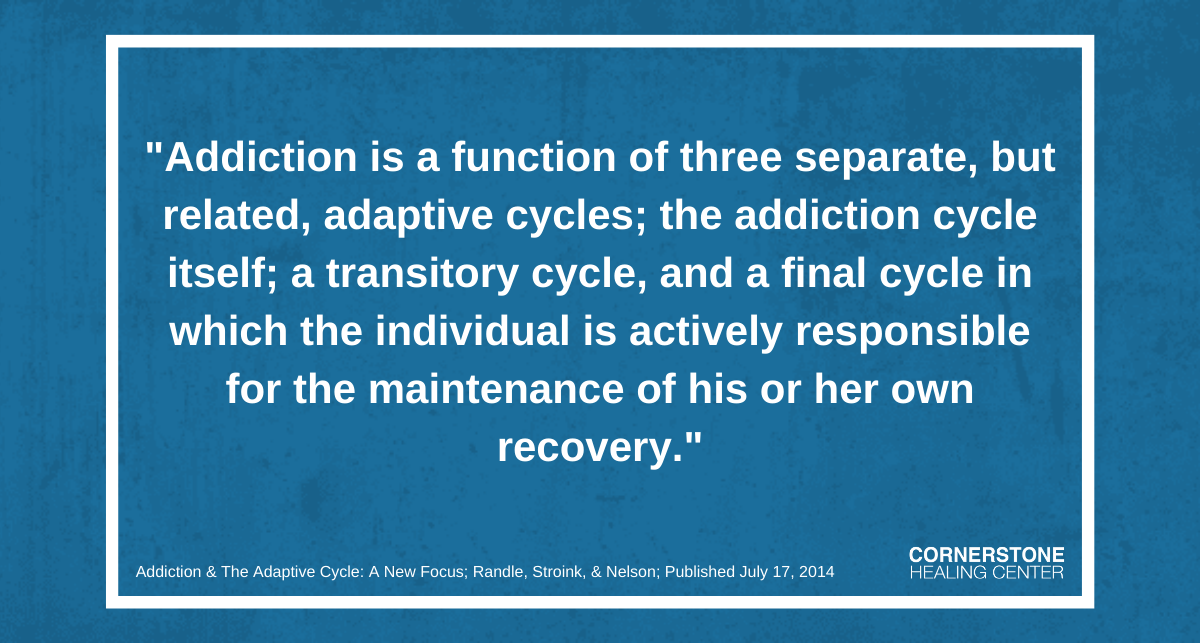Recovery is an Ongoing Process that Will Always Need Tending
Although it can often feel like hope is fading away when a loved one does not appear to be making meaningful strides in their recovery journey, there is plenty of evidence to suggest that it is never too late for someone to find the help and support they need.
Many people suffering from substance abuse had recovered and led lives of sobriety and peace even when recovery seemed infinitely out of reach. That alone provides plenty of optimism for those worried about a loved one’s struggle with addiction.
Unfortunately, the road to recovery may sometimes be longer than many had hoped – but giving up should never be an option.
The last stage in the 5 Stages of Recovery3 is maintenance and this refers to the ongoing daily maintenance of recovery.

Understanding the Journey of Overcoming Addiction
The journey of recovery may be unique for everyone, but specific patterns emerge when you look into the stories of people who have successfully achieved recovery. Through these common threads, one can see what it takes to make becoming a recovered individual possible and more likely.
Through research and connecting with those in the recovery community, we can learn from those who have come before us and use their wisdom as a template for how we go about our sobriety and recovery. We don’t have to figure this out alone, as help is available.
What it takes the overcome addiction
Overcoming addiction is not easy, but it’s worth the effort for those willing to put in the work.
The key to success lies in honestly acknowledging there is a problem and then showing up with resolve and giving everything you have, even when feelings of despair or desperation set in.
It takes tremendous strength not to give up when things look bleak. Even if it takes many slips or relapses, by persistently pushing through, the goal of recovery can still be achieved, eventually.
Showing up every day with renewed vigor is how overdue change will occur. It is essential to keep fighting until victory has been won: treatment and lasting sobriety become a reality.
Acknowledging There Is A Problem
Surrendering to the powerlessness of substance abuse is one of the most important and challenging steps for an addict to take on their path to recovery.
Even those willing to confront their drug use’s terrible impact on their lives must gather enough courage and humility to recognize that their efforts alone are not enough.
This is why steps 1-3 of Alcoholics Anonymous are particularly vital and a 12-step recovery can assist in long-term sobriety2; they encourage addicts to admit that they are powerless over their addiction, that their lives have become unmanageable due to the drug use, and that seeking help from fellow members of AA and a higher power will be necessary for them to begin healing and begin the journey of sobriety.
Showing Up and Trying Is Half The Battle
One of the most challenging but important steps in conquering an addiction is showing up and giving your best effort.
Initially, this requires a person to be willing to be vulnerable, accept their addiction struggle, and work to make a change. Although progress can sometimes feel slow, every small step toward recovery adds up.
Building a support system and having a routine that involves self-care activities such as exercise or meditation can be very helpful in maintaining sobriety while developing personal resilience.
Ultimately, the person’s consistent effort pays off, so staying motivated is essential despite roadblocks along the way. Showing up and trying your absolute hardest will make all the difference in overcoming an addiction.
You Should Never Give Up, Recovery Is Possible
It can be easy to give up when you are struggling with addiction, but never do – there is always hope for a better life, even after years and years of substance abuse.
Recovery from addiction or alcoholism is possible, and it starts with asking for help. Many resources are available to those that need assistance to get sober from professionals such as medical doctors, nurses, psychiatrists, psychologists, and therapists working in rehabilitation treatment centers and addiction support groups.
There will be times when it feels too hard to keep going or moments of relapse along the journey toward sobriety; acknowledge them while staying focused on your end goal.
Remember that no matter how challenging the struggle is right now, with determination and perseverance, it’s possible to face any challenge and build lasting change in your life.
Never underestimate yourself —you can do it.
Recovery Maintenance is Up to The Individual
It’s important to understand that you are solely responsible for your recovery and addiction recovery takes everyday maintenance4.
It’s up to each individual person to keep their recovery going.
Recovery maintenance is also an active process that requires one to stay dedicated, motivated, and open-minded.
It’s essential for recovering individuals to make lifestyle changes like attending support group meetings, setting healthy boundaries with people, and developing healthy habits.
By making these changes, one can build a strong foundation that supports their long-term recovery.
Although it may not be easy to make lasting lifestyle changes, the benefits of doing so are worth the effort in the end.
By taking proactive steps toward recovery maintenance, you will be able to lead a good life.
Why You Shouldn’t Give Up On Your Addicted Loved One
Even in the midst of active addiction, there is a chance for people to break free from the chains of substance abuse and make positive changes in their lives- if they are given an opportunity.
For anyone wanting to help someone else – such as a friend or family member – who is suffering from addiction, it is incredibly important not to give up on them.
Despite their current condition and all its challenges, showing unconditional love and support while also having strong boundaries can go a long way towards helping them find faith in themselves again.
This can be an arduous journey, but with understanding, empathy, care, and various treatment solutions available, breaking away from destructive habits will eventually become possible.
Your Loved One Needs You
Addiction is a complex and multi-dimensional illness that requires the utmost care and attention from loved ones.
Even though it can be difficult to show someone in active addiction love and understanding when their behavior has caused hurt, disappointment, and broken trust, it’s essential not to forget that they still need compassionate support.
It is vital for family members of someone who is struggling with addiction to demonstrate their love and remain present in the individual’s life as a resource for recovery.
This doesn’t mean enabling lousy behavior; instead, being firm but kind in expressing your unwavering belief that the individual can break from addiction should serve as a crucial source of hope and stability in getting through challenging circumstances.
How Families Can Provide Help Without Enabling
It is important to stay engaged with your loved one who is actively using drugs and alcohol, as showing your support in this way can give them hope and strength to recover when they are ready.
However, it is equally important not to enable their addiction – while it may be difficult, it is vital that you stay firm on boundaries.
Talk openly, understanding the pains they are going through with the recognition that they cannot overcome their addiction alone.
Remember to emphasize that recovery is possible and tell them you will be there for them even when things get tough. Offer emotional support instead of materialistic items, such as a listening ear.
Lastly, please educate yourself about the effects of drugs or alcohol so you can help provide resources or outlets for them within reason and kind but firm words of encouragement when talking to them about their situation.
Recovery Is Possible
Despite a person’s current circumstances or history, there is always hope for recovery from addiction. Everyone can achieve sobriety regardless of age, income level, or location.
It may not be an easy process, but it can be accomplished with perseverance, commitment, and support from other people.
Some people have even credited their recovery to seemingly tiny moments of clarity or newfound motivation in the midst of misery or chaos.
Ultimately, no matter how dark and desperate things might seem, life can always take an unexpected turn for the better with enough determination and effort put into climbing out of the depths of addiction.
Sources
[1] Understanding Drug Use and Addiction
[2] 12-Step Interventions and Mutual Support Programs for Substance Use Disorders: An Overview
[4]Addiction and the adaptive cycle: A new focus
Published: 2/21/2023



